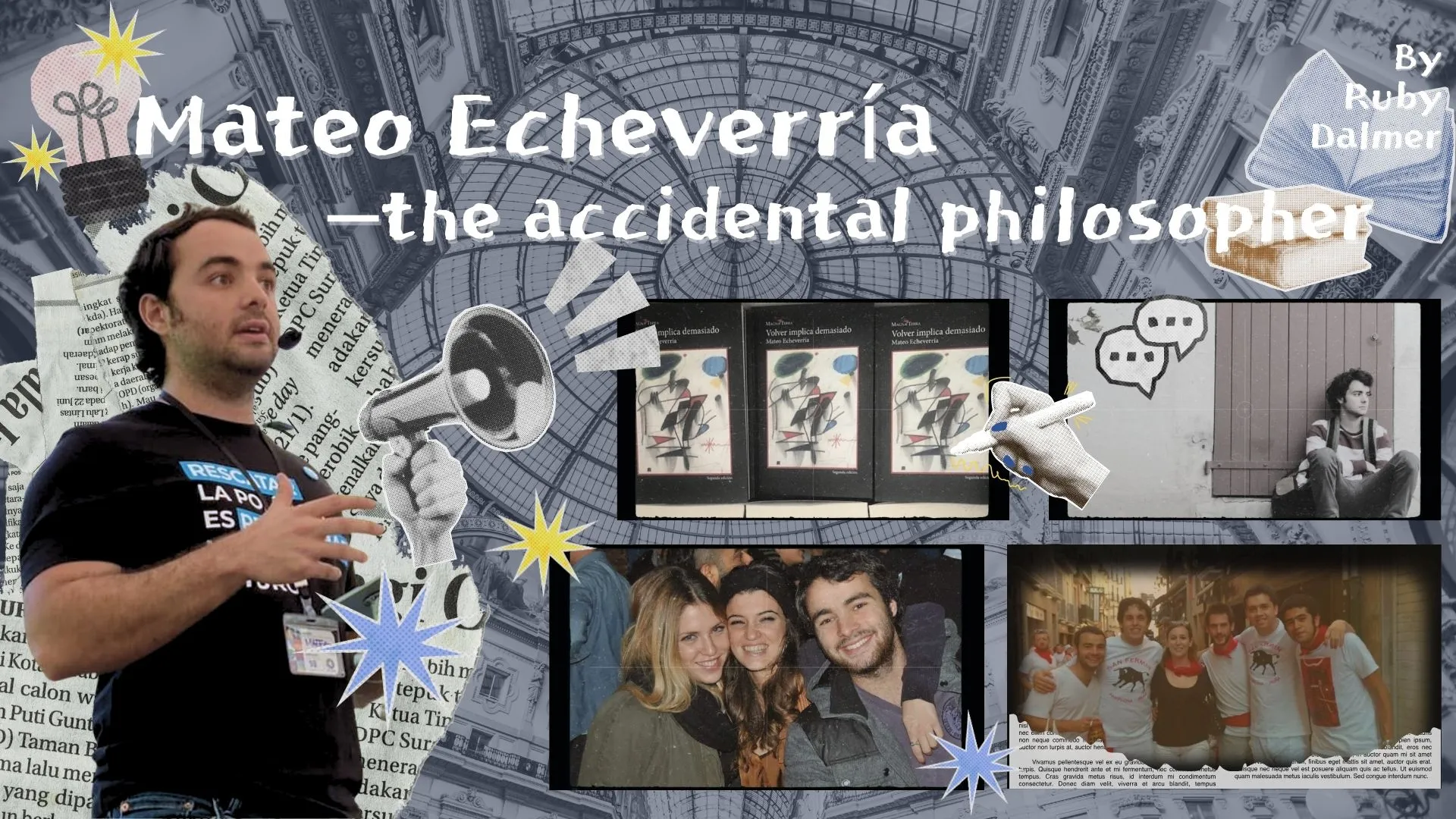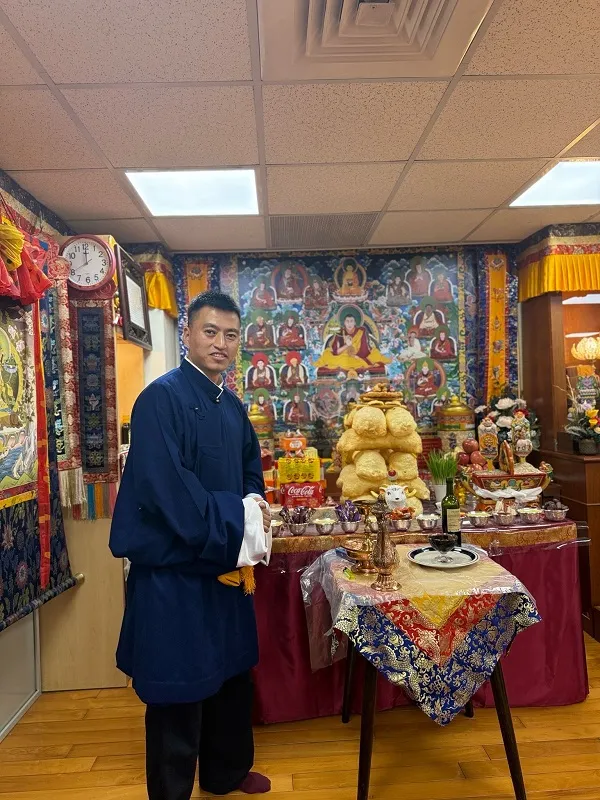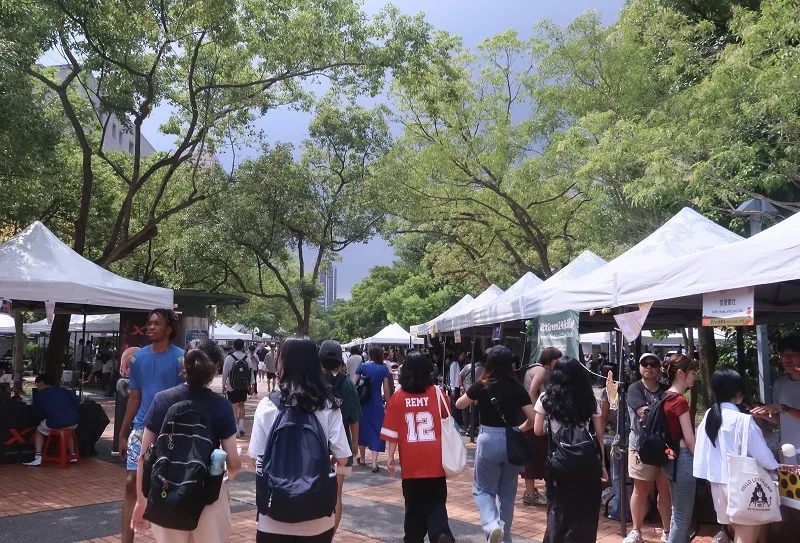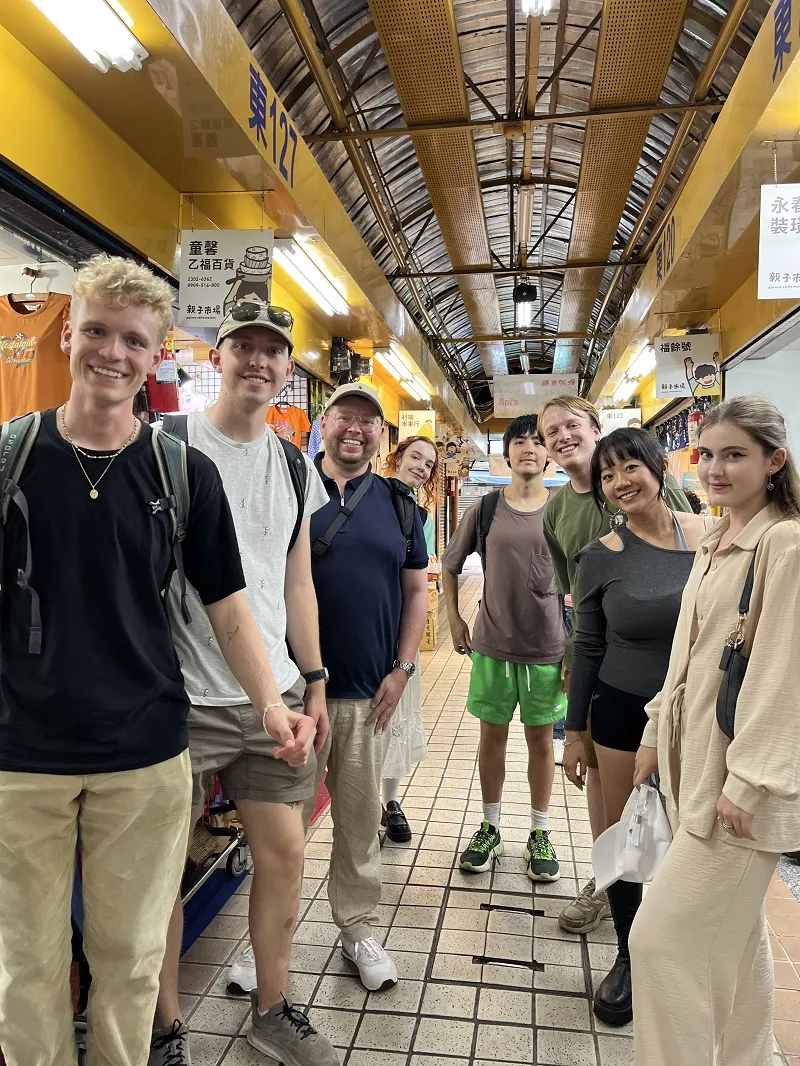Mateo Echeverría has lived a life far from ordinary. His story weaves across continents, passions, and professions. Now embarking on his third master's degree, this time at NCCU, Mateo evades easy categorisation. At once an author, philosopher, politician, human resources professional, academic, and teacher, all of the many winding roads of Mateo lead back to one starting place: curiosity.
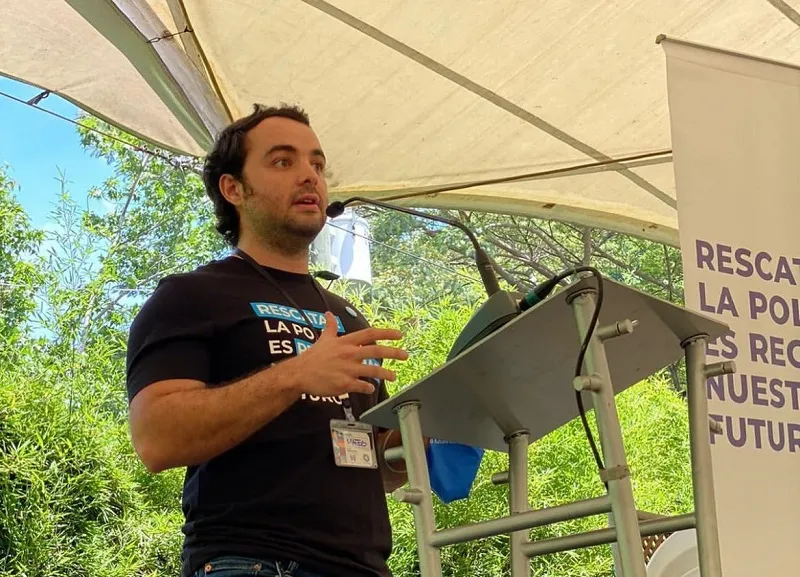
▲Mateo Echeverría, now studying his third master's degree at NCCU, is an author, philosopher, politician, human resources professional, academic, and teacher.
Mateo's story began in Guatemala — where he was born and raised. He was an inquisitive child with an insatiable appetite for questioning everything. As he puts it, "every time my mother would tell me to do something, I would ask her, 'but why' ?".
At school, his curiosity came in two major waves. Schoolboy Mateo had two distinct phases of schooling that were separated by, of all things, a kiss. In the first half of his schooling life, he was a gold standard "super mommy's boy", he says. He was shy and preppy – a teacher's delight. But everything changed in high school with his first kiss with a girl. "Suddenly nobody was joking about me", he says. The teacher's pet had lost his golden boy shine. He had broken bad and couldn't get enough.
Mateo's curiosity soon fell markedly outside the realm of formal education — and he went off the deep end. "I started getting very rebellious about things. I remember one year I had 14 courses and I failed 11 of them", he reflects. With all the classic accolades of a teenage delinquent under his belt, his parents were deeply concerned. Between off-kilter piercings, questionably illicit substances, and the constant threat of expulsion, his dad had to intervene. And intervene he did. In Mateo's words, 'my dad suddenly asked me if I wanted to go on a trip to Europe. And I was like 'wow what an amazing gift he is giving me' ". He was told he would be travelling with a group of sophisticated older college guys. As a sixteen year old, little else could be cooler.
Nothing could have prepared him for what he found when he got to the airport. "As soon as I saw the group I realised what had happened", he reflects. Instead of cool party-ing college guys, he got a smattering of deeply conservative Catholic priests. The summer of fun in the sun had morphed before his eyes into a religious pilgrimage to visit the pope in Italy.
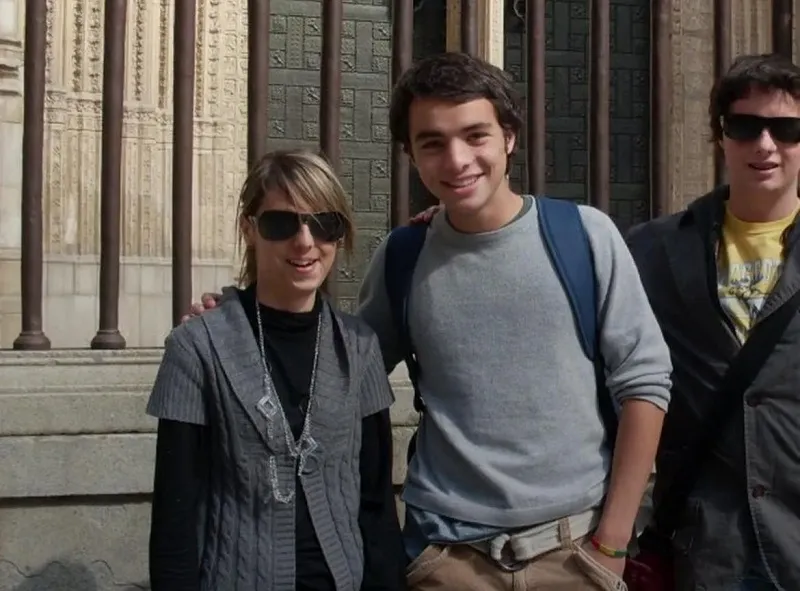
▲Young Mateo in his trip to Europe
"It was a total scam!", he says. His dad had called in the almighty powers of the Catholic Church to straighten out his misbehaving son. Hidden behind two weeks under the tutelage of priests in Europe was the ultimate goal of Mateo's salvation. In the beginning, there was a biblical stand-off between Mateo and the priests. He was annoyed to be taken on a trip he didn't ask for, and they were discovering Mateo's nonreligious ways. "They were doing a lot of evangelist preaching to me about god", he recalls.
But then something happened. In the second week, Mateo's life was changed forever. One of the priests on the trip also happened to be a philosopher — and Mateo got talking to him. In his words, "before him, I thought school was very uninteresting and useless. But when I asked him many questions, even though I wasn't understanding half of it, I saw that there was a deeper sense to the things he was saying".
At that moment, Mateo knew he would go on to study philosophy. He fell in love with philosophy as he fell in love with Europe. So even though the priests were unsuccessful in their religious conversion, "it was still a kind of conversion — not a religious one but a philosophical conversion", he says. Much to the delight of his father, Mateo came back from his priestly trip with a new lease on life. He found himself motivated and passionate about school — and poured everything into his studies. By the end of his senior year, the same school that was ready to kick him out ended up offering him a job. So before setting off to university, Mateo worked at his high school for 6 months. His parents couldn't have been more thrilled and his dad couldn't have been more smug.
With a desire to get back to Europe, Mateo made the decision to move to Spain for university. A philosophy degree was a hard sell for his Dad, but with the concession that he would attend a Catholic university, it was a deal. Mateo was 18 when he moved to Spain. Thrown into the academic deep end amidst plucky philosophy majors, he felt his years of teenage rebellion catch up on him. "I noticed I had these huge intellectual handicaps compared to my classmates. I wasn't able to write a proper essay for example — very basic things", he recalls.
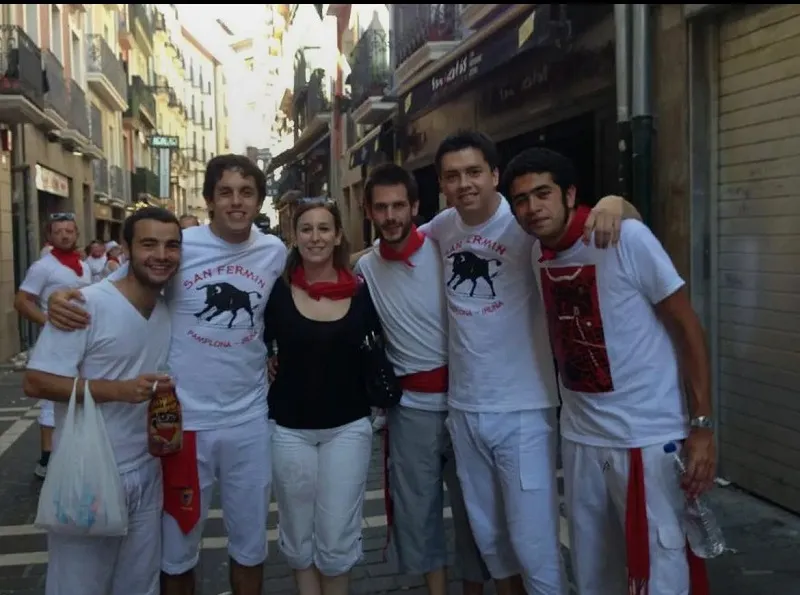
▲Matro at a festival in Spain where he lived
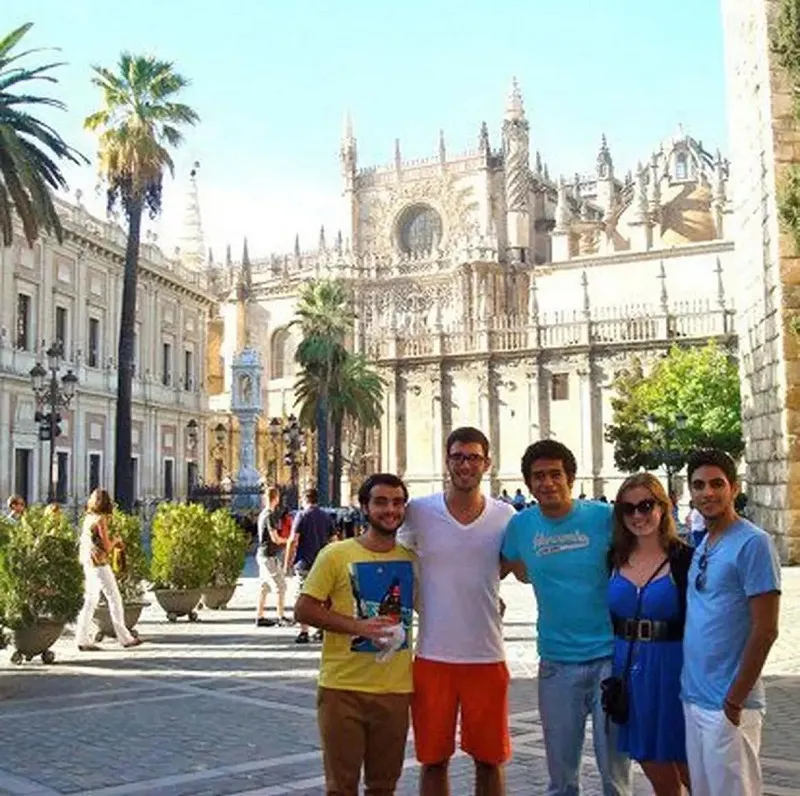
▲Mateo in Sevilla for his 19 birthday
Over the course of his first year, Mateo had a kind of spiritual crisis. He came to the university curious about investigating his faith deeper. His relationship to religion had always been tense — "full of guilt, full of shame, but also full of devotion", he says. "But after studying philosophy for a year and making friends with many non-religious people — reading many books and having many conversations — I found that I was a non-believer", he reflects. Because god was central to philosophy at his catholic university, he decided to change majors to something broader: humanities.
A turning point in his university career came when he won an Erasmus scholarship to study for one year in Italy. This year would go on to be the best year of his life yet. Because his degree was humanities, he had enormous freedom in what he could study. "So I did a whole class on Albert Camus. I learned Italian poetry, Italian art. It was beautiful", he recalls. And more impressive still, armed with just one month of an intensive Italian course, all his classes were in Italian. In Mateo's words, "I think god confused himself — because I am Italian — in my spirit at least".
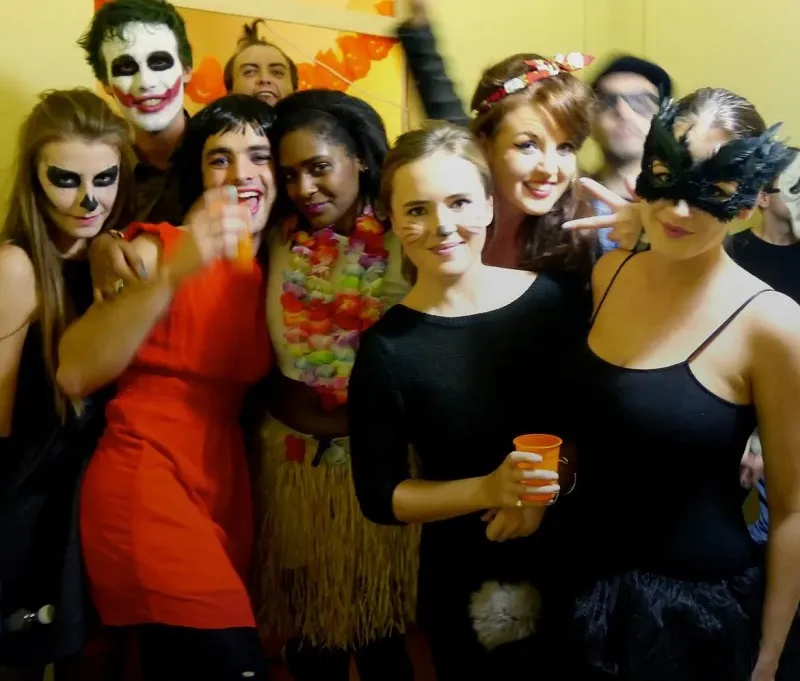
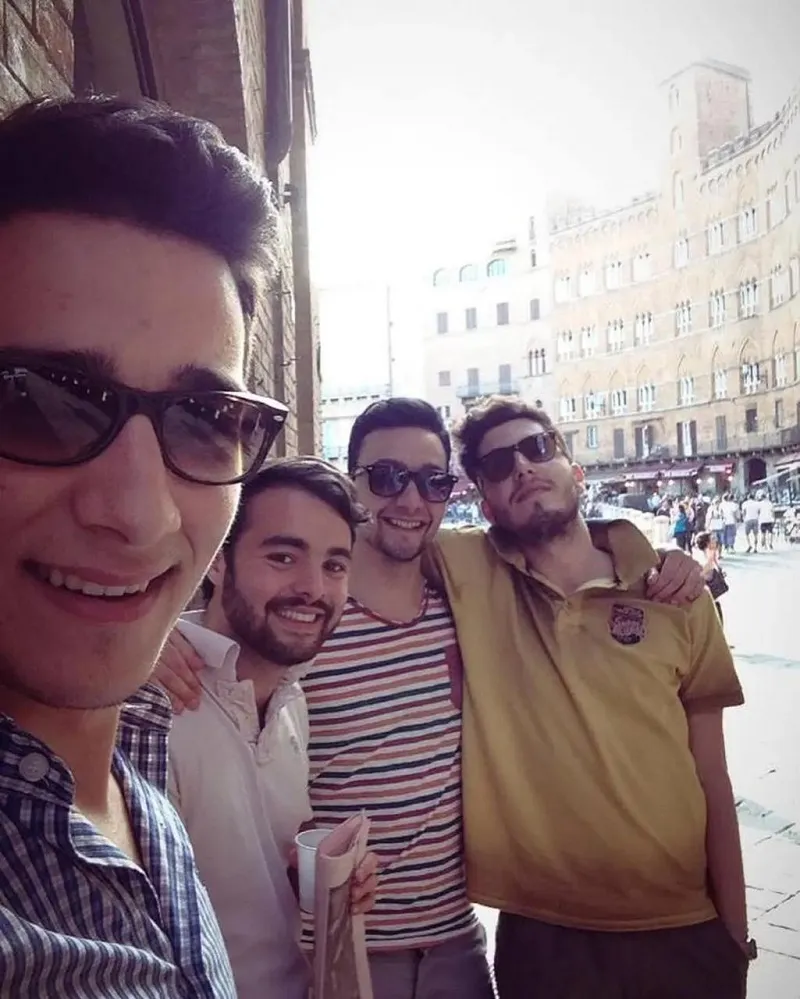
▲Mateo's life in Italy when he won the Erasmus scholarship
After graduation back in Spain, he started to get anxious. Economic worries drove him to seek stability — and he decided to pursue a master's degree in Human Resources. Once he had completed his studies, he experienced a rude awakening about the darker realities of working in HR. As he puts it, "during my Human Resources studies, I was taught that we are the protagonists of the movie, but then I entered the field and discovered we were the antagonists all along". After dedicating 3 years to the world of HR — and getting out of a long-term relationship, he was disillusioned and ready for radical life change. "I was like 'wait, what am I doing here?'", he recalls. Returning home felt like the answer to his calls — so back to Guatemala he went.
Back home, he vowed to do things that gave him meaning and purpose. He came back to his high school with the goal of one day teaching. He used his HR background to begin working as a college counsellor — helping students with big life decisions. But after a year, he got his big break. He was allocated a global affairs and economics class to teach — without a background in either of those notoriously complex disciplines. But he was up for the challenge. He studied hard, read many books, and also happened to have lots of economist friends willing to lend a hand. "I had to do a lot of self training", he recalls. But by his third year teaching, he felt confident and proud.
On the side of his teaching career, Mateo somehow found the time to work on something he'd long dreamt of: writing his first book. He based the book, Volver implica demasiado, on his own experiences of moving — of coming back to a place that's no longer there. Mateo breathes words into the art of living within liminality. As he reflects, "suddenly you're from nowhere — you belong nowhere. You lost something that you're never going to find again. And the sooner you realise that the better". These complexities were channelled in the narrative through a love story. After fighting the uphill battle to get published — including writing 25 different versions of the book — Mateo became a published author.
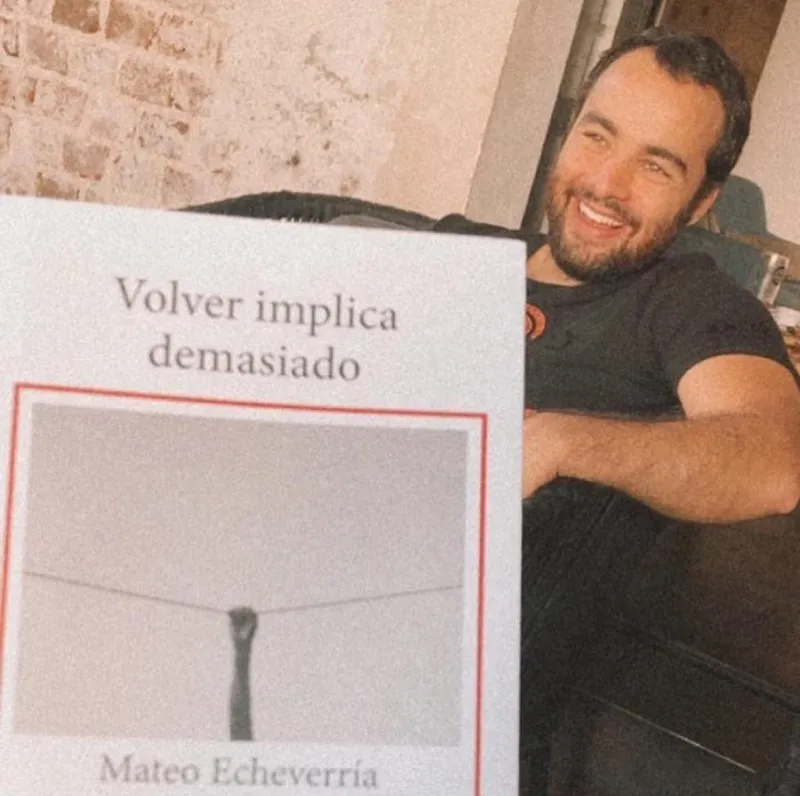
▲Mateo and his book, Volver implica demasiado.
During these years, his intellectual life was rich and vast. He was writing a book, organising a book club, teaching, and writing political articles. And these political articles would mark yet another turning point in his life.
A group of people then contacted him, interested in his political writing. These people were a collective of activists, political scientists, international relations professionals, and economists — and they had one goal in mind. They wanted to start a grassroots political party, and asked Mateo to join. Without hesitation, Mateo was in. The group were united in two things — most had the privilege of higher education and spending time outside of Guatemala. These two elements were critical, "because both experiences allowed us to see the injustice part of our country. We made a conscious effort to not normalise them", Mateo says.
The party was initially critiqued for being homogenous in their middle-class, urban, educated ways. However, as Mateo argues, "The majority of people who have privilege are always looking to sustain and protect that privilege. But these people were not. They were taking great losses to do what's right".
Nobody had experience making a political party. These were activists who saw the need to do more — to encourage real political participation. And Mateo saw it too. In Guatemala, he says, "one in two kids suffer from malnutrition". Addressing poverty, inequality, injustice, and corruption was at the top of their political agenda.
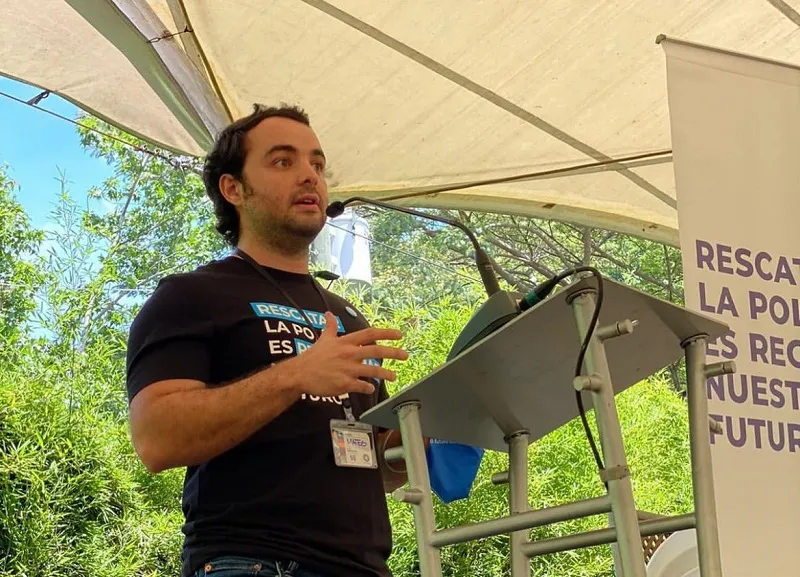
▲Mateo delivering a speech for the political party
After years of workshopping, the party: Celeste, was born. Mateo spent weekends on the campaign trail — door knocking to reach the number of signatures required to make it to general elections. Though they didn't make it on their first try, as Mateo says, "we are already changing things and people — and that's politics. It doesn't have to be electoral politics to be political change". Alongside his burgeoning political career, Mateo also found time to sneak in his second master's degree — this time in philosophy. "Philosophy is my passion, so that's why I came back", he says.
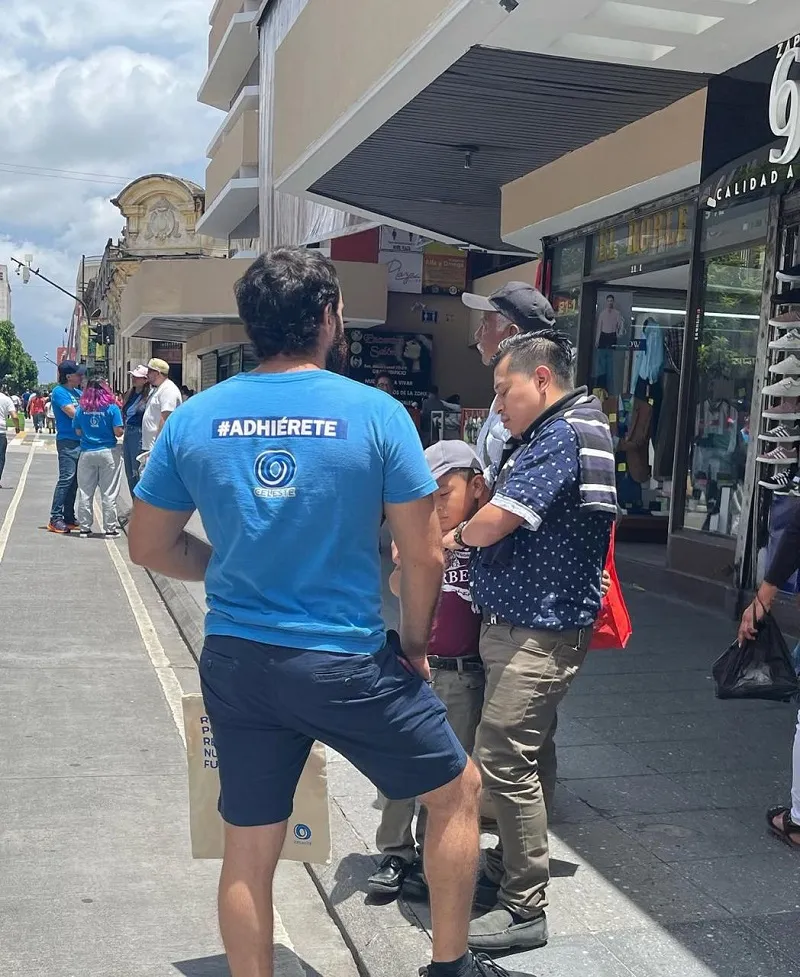
▲Campaigning in the streets for the political party
As time went on, Mateo began to look further afield again — this time to Asia. Believe it or not, he had steam left in him for yet another master's degree. His purpose was two fold: he wanted to pursue social sciences, and his mental health called for a break from Guatemala.
Curiosity led him to Taipei. Mateo is now in his second year at NCCU, pursuing an International Master's Program in International Studies. NCCU international student life suits Mateo. In his words, "I love NCCU. I enjoy all the things the university has to offer — I go to the clubs, do yoga, workout at the gym, go running around the river every week". Aside from his studies, multitasking Mateo has also written his second book. The book is called Barrabás, and it's set to be published this December.
Mateo's curious life has led him across oceans and eras — now paving his path in Asia. "I've tried many different things and I still don't know what I'm going to do in the future", he reflects. But uncertainty is the gateway to colourful opportunity. And Mateo has been able to build a home in that uncertainty — living seamlessly within liminality. In his words, "I'm going to be 33 soon and I'm here doing my master's in Taiwan. And I feel very special for doing this and being here".

